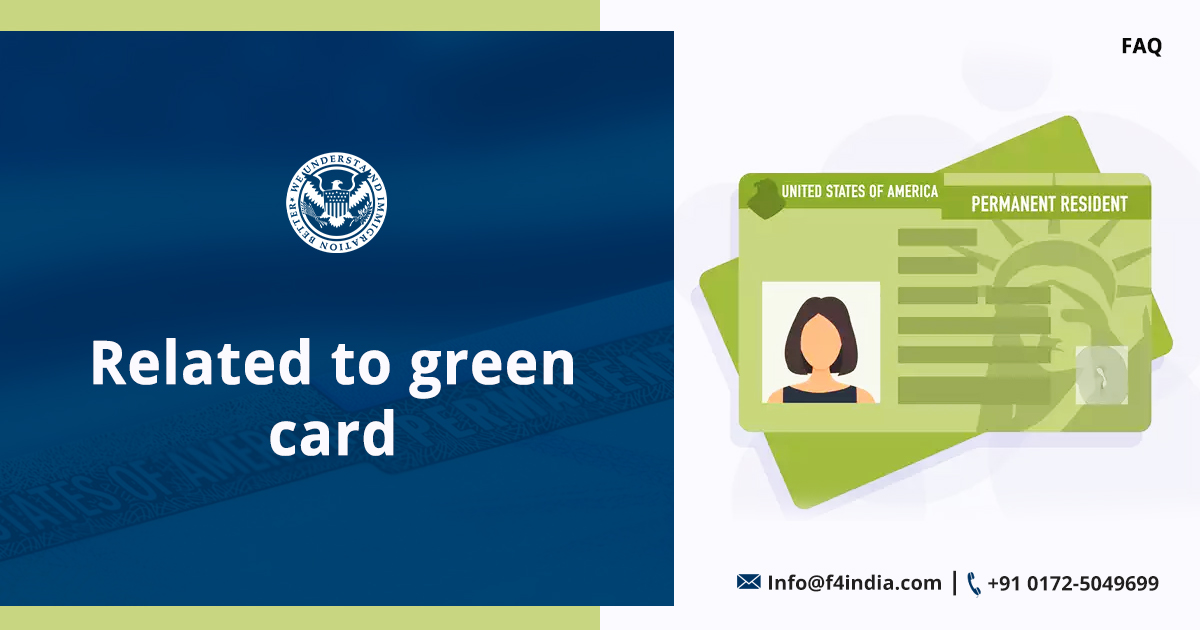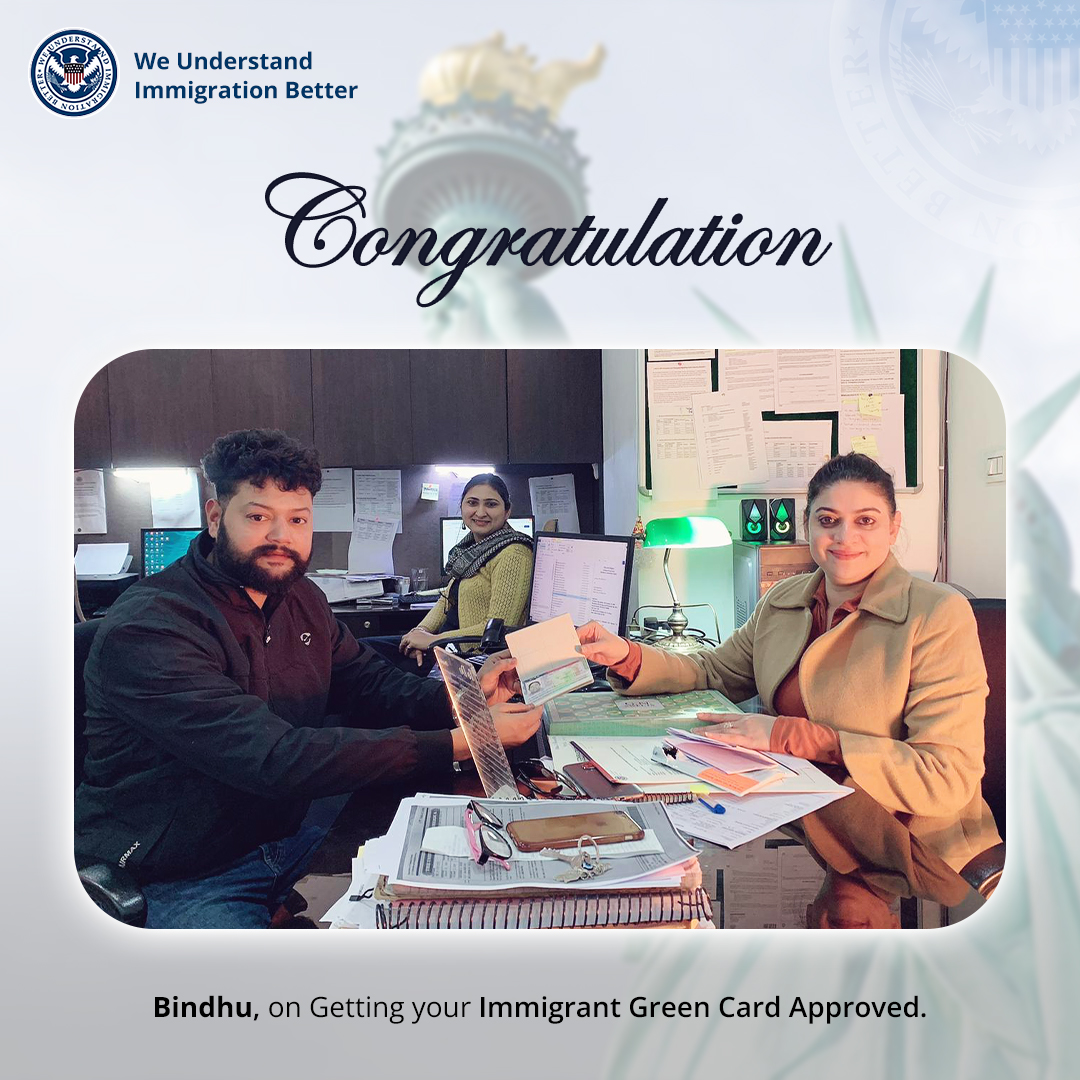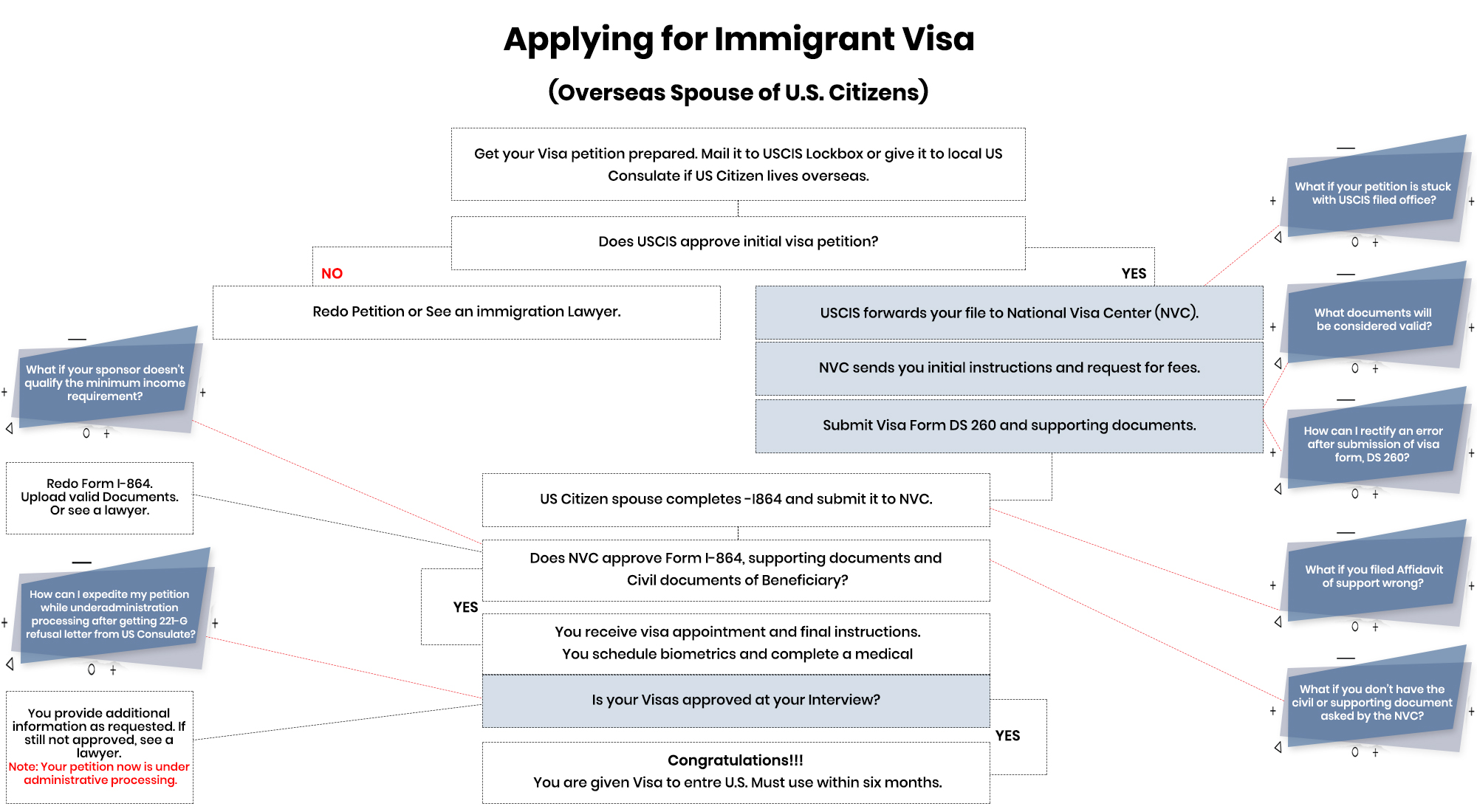FAQ Related to Green Card

What is a “green card”?
A “green card” is a colloquial term for the Permanent Resident Card, which is a document that signifies that the holder is a lawful permanent resident of the United States. The card is typically green in color, although earlier versions had different colors. It is an official proof of the holder’s status as a U.S. resident and contains important identifying information.
How long does a green card last?
Since September 1989, the green card has had a validity period of ten years. The expiration date is printed on the card. Before the card expires, it is advisable to file an application to replace it. However, it’s important to note that the expiration of the card does not mean the loss of legal residence. The card is a document that helps prove the holder’s permanent resident status, but the status itself is not dependent on the card.
What if I do not wish to become a U.S. citizen and my ten-year green card is about to expire?
How do I keep it valid? To keep your green card valid, you must file Form I-90, Application to Replace Permanent Resident Card, with the U.S. Citizenship and Immigration Services (USCIS). The current filing fee for Form I-90 is $540, which includes the application fee and a biometrics appointment fee. You can obtain the form by calling the USCIS forms line or downloading it from the USCIS website. It is also possible to file the replacement application online through the USCIS website.
What good is the green card to me?
With a green card, you have the right to live and work permanently in the United States. It allows you to pursue any lawful employment without restrictions. However, there are certain public benefits that may be restricted. Additionally, the green card allows you to travel outside the United States and return using the card and your passport from your country of origin. It’s important to note that committing certain crimes or violating immigration laws can jeopardize your ability to re-enter the United States or even lead to deportation.
What are the different ways for me to get a green card?
There are various avenues to obtain a green card, including:
Family-based sponsorship: A U.S. citizen or lawful permanent resident can petition for a close family member.
Employment-based sponsorship: An employer can sponsor a foreign worker for a green card.
Asylum or refugee status: Individuals granted political asylum or refugee status may be eligible for a green card.
Diversity Visa Lottery:
The Diversity Visa Lottery, also known as the Green Card Lottery, provides a limited number of visas to individuals from countries with low rates of immigration to the United States.
Special legislation: In certain cases, Congress may pass special legislation that leads to legal residence, although such opportunities are rare.
Please list the types of close relatives for whom I can file a petition to help them get a green card, what my immigration status has to be in order to file that petition, and how long I will have to wait before my relative becomes a legal resident. If you are a U.S. citizen, you can file a petition for the following close relatives:
Spouse
Unmarried child under age 21
Parent (if you are at least 21 years old)
If you are a lawful permanent resident (green card holder), you can file a petition for the following close relatives:
Spouse
Unmarried child over age 21
The waiting time for a relative to become a legal resident varies based on the family preference category and the country of origin. Immediate relatives of U.S. citizens, such as spouses, unmarried children under 21, and parents, generally have faster processing times compared to other family preference.
Top of Form
Will immediate relatives receive their green cards faster than other relatives?
Yes. Immediate relatives, such as spouses, unmarried children under the age of twenty-one, or parents of a US citizen, generally receive their visas more quickly than other relatives. They are considered to have an “immediately available” immigrant visa, which means they do not have to wait in lengthy queues like some other relatives in less advantageous positions.
Is the green card also referred to as the resident alien card?
Who is considered an “alien”? The term “resident alien card” is sometimes used interchangeably with the green card. An “alien” in immigration law refers to any individual who is a foreign citizen and not a citizen of the United States. A “resident alien” is a legal resident of the United States, but they still fall under the category of an alien and are subject to “removal” or deportation if they fail to comply with certain provisions of immigration law. The only way to be protected from removal is to become a naturalized US citizen or acquire US citizenship through a parent.
What does it mean to be an immigrant? An individual is considered an immigrant if they are a foreign citizen who has arrived at a port of entry or is already in the United States (whether legally or illegally) and intends to permanently stay in the country. Immigrating implies a permanent move or settlement.
Isn’t every foreign citizen in the United States considered an immigrant?
While many foreign citizens in the United States are indeed immigrants, there is a distinct term for those who are not immigrants. This term is “non-immigrant,” which is not commonly used in everyday language or frequently mentioned in newspapers. A non-immigrant refers to any foreign citizen who does not intend to permanently stay in the United States and holds a visa, known as a non-immigrant visa, which allows for a legal but temporary stay in the country. We will discuss non-immigrant visas further in the subsequent sections.
What should I do in case of losing or theft of my green card?
In case of a theft, it is important to report the incident to your local police station. To replace your green card, you can contact the immigration service at (800) 870-3676 and request Form I-90, Application to Replace Permanent Resident Card. Alternatively, you can download the form from the USCIS website at www.uscis.gov. Follow the provided instructions and submit the form along with a check or money order of $540 made payable to the “US Department of Homeland Security
Can my green card be taken away from me?
Yes, it is possible for your green card to be revoked if immigration agencies or an immigration judge determine that you abandoned your US residence, provided false information to obtain the card, or committed a serious crime that makes you subject to removal. In the latter two cases, losing your green card could result in permanent ineligibility for obtaining another one. It’s crucial to avoid such situations.
My green card displays my married name. If I get divorced, can I change it back to my maiden name?
Yes, once you obtain a divorce decree that includes a reference to your maiden name, you can use Form I-90 to request a name change. This form requires a fee of $540 ($455 for the form and $85 for biometrics). Remember to include the original green card and make photocopies of both sides for your records. It is advisable not to change your address until you receive the new card.
I received my green card in the 1970s, and it is numbered 1-151 instead of 1-551. Is it still valid? No, the old Form I-151 green card expired on March 20, 1996. It cannot be used to prove eligibility to work or re-enter the United States legally after traveling abroad. It must be replaced. If you received your green card after September 1989, it expires after ten years and must be replaced.
Does the expiration of my green card mean that my legal resident status has also expired? No, your legal resident status is not affected by the expiration of your green card. You can still apply for Form I-90 to obtain a new green card, although delays may occur. Additionally, you can take advantage of your long-term legal resident status by promptly applying for naturalization. To obtain Form N-400, Application for Naturalization, you can call the USCIS at (800) 870-3676 or download the form from their website at www.uscis.gov.
Someone told me that I could lose my permanent residence if I stay outside the United States for more than a year. Is that true?
Typically, a green card is strong evidence of an individual’s status as a lawful permanent resident. However, if a person has been absent from the United States for a year or longer, the green card may no longer suffice as proof of residency. Airlines may refuse to let individuals with green cards board a plane back to the United States after being outside the country for a year or more. In such cases, individuals must approach the nearest United States consulate or embassy overseas and request an “embarkation letter” to authorize their travel back to the United States. This process can be challenging and requires providing extensive documentation to demonstrate continuous residence in the United States. Staying outside the United States for more than six months can also impact eligibility for naturalization. If you anticipate a trip abroad lasting a year or more, it is advisable to apply for a re-entry permit (addressed in the next question).
I have an urgent need to return abroad and attend to some business affairs that will take longer than six months. Can I obtain special permission to depart and return without jeopardizing my green card?
Yes, you can obtain a “re-entry permit” for this purpose. You need to submit Form I-131, Application for Travel Document, along with a fee of $660 ($575 for the I-131 form and $85 for biometrics fees) to the USCIS. You can obtain the form by calling the forms line at (800) 876-3676 or downloading it from the USCIS website at www.uscis.gov.
If I obtain a re-entry permit, how long will it be valid for?
For a lawful permanent resident, the re-entry permit will be valid for re-entry to the United States within two years from the date of issuance. The re-entry permit protects against the claim that you have lost your status as a permanent resident. However, it does not protect your eligibility to apply for naturalization. Depending on the length of time spent abroad, particularly if you have been away for six months or more on any given trip, it may affect when you become eligible for naturalization. A significant break in the residency requirements may require you to accumulate time as a legal resident again before applying for citizenship.
I was approved for a green card over ten months ago during my adjustment of status interview, but I have not received the physical card in the mail. What should I do?
You can use Form G-731, Inquiry about Status of I-551 Alien Registration Card (no fee), to prompt the USCIS to trace your green card. This form can help investigate the reasons for the delay in manufacturing or delivery of your card. You can download the form from the USCIS website at www.uscis.gov. If this approach does not yield results, you can inquire by calling (800) 375-5283. If you discover that the immigration service has mailed the card but you have not received it, you may also consider filing Form I-90, Application to Replace Permanent Resident Card, without a fee.
Today i have received my mom’s passport with US immigration visa for green card . we had amazing experience .I absolutely recommend their service to anyone who has us immigration and non immigration issues. Attorneys and paralegals of this firm is immensely awesome and they are extremely attentive and enlightened. Every one in F4 India law firm have been so helpful.
BINDU


